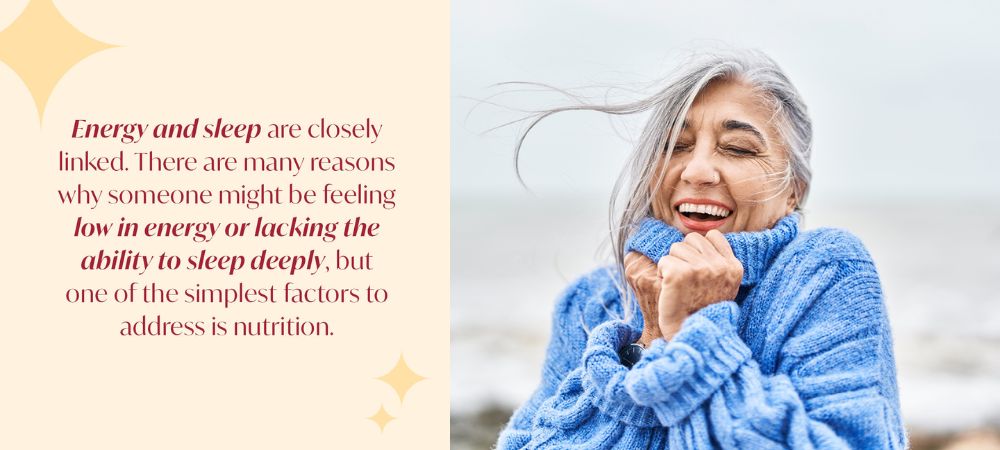The link between energy & sleep: Health 2000 (Nelson)
Energy and sleep may appear to be opposite to each other, but they are very closely linked. It’s not just that poor sleep can cause a lack of energy throughout the day – if this carries on too long, tiredness can adversely affect your circadian rhythm and, in a vicious cycle, lead to further issues with sleeping. Supporting quality sleep at night and energy production during the day may help to break the cycle of circadian disruption. At the very least, you want to sleep well and to have the energy to do more of what you love.
Let’s start with nutrition. There are many reasons why someone might be feeling low in energy or lacking the ability to sleep deeply, but one of the simplest factors to address is nutrition. You need essential micronutrients in your diet to create energy, repair, build body tissue, and support sound sleep at night. From there, you can look at how sunlight, less screen time (especially at night), and stress management can positively impact your sleep and energy.
There are eight B vitamins that are all involved with energy production in your body, helping a variety of enzymes release energy from carbohydrates and fat, break down amino acids, and transport nutrients around your body to turn food into energy. Because B vitamins are water-soluble and excess is usually excreted, they must be obtained from your daily diet. Vitamin B12 is only available in the correct form from animal foods, so if your dietary intake is low, supplementation is helpful.
Read More


This Post Has 0 Comments